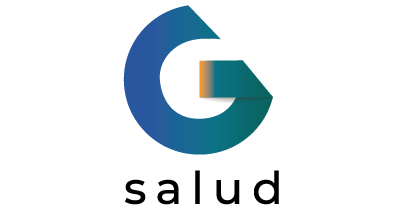- Shifting Tides: Navigate Global Events and Financial Updates with Current Business & World news for Informed Perspectives.
- Understanding Global Economic Indicators
- Geopolitical Risks and Their Impact
- The Shifting Dynamics of International Trade
- Technological Disruption and Innovation
- The Rise of Artificial Intelligence (AI)
- Navigating Financial Market Volatility
Shifting Tides: Navigate Global Events and Financial Updates with Current Business & World news for Informed Perspectives.
In today’s rapidly evolving global landscape, access to current and reliable information is paramount. The sheer volume of information available can be overwhelming, making it crucial to navigate the complexities of world events and financial markets with informed perspectives. Staying abreast of significant developments isn’t merely about knowing what’s happening; it’s about understanding the news underlying factors, potential consequences, and opportunities they present. This is where a commitment to staying informed through diligent reporting and analysis becomes invaluable, and understanding the significance of current events is vital to adapt to these shifts.
The constant flow of information, often delivered instantaneously, necessitates a discerning approach. Recognizing credible sources, understanding biases, and critically evaluating data are essential skills in the digital age. Access to timely business and world information empowers individuals and organizations to make informed decisions, mitigate risks, and capitalize on emerging trends. Genuine understanding and assessment of current affairs is an important skill for all.
Understanding Global Economic Indicators
Global economic indicators serve as barometers of the health and direction of the world economy. These indicators, ranging from GDP growth rates to inflation figures and unemployment data, provide valuable insights into the performance of individual countries and the overall global economic climate. Monitoring these indicators allows investors, policymakers, and businesses to make informed decisions and adjust their strategies accordingly. Fluctuations in these statistics often foreshadow broader trends and potential challenges.
Understanding these indicators requires a nuanced approach, considering factors such as seasonality, revisions, and the potential for delayed impacts. The interplay between different indicators is also critical, as they often provide a more complete picture when analyzed together. Assessing economic health requires understanding factors beyond simple figures, including political stability and resource availability.
| US GDP Growth (QoQ) | 2.6% | 2.1% | Upward |
| Eurozone Inflation (YoY) | 6.9% | 7.4% | Downward |
| China Manufacturing PMI | 50.2 | 49.8 | Expansion |
| UK Unemployment Rate | 4.2% | 4.0% | Upward |
Geopolitical Risks and Their Impact
Geopolitical risks, ranging from political instability and armed conflicts to international trade disputes and cyberattacks, pose significant threats to the global economy. These risks can disrupt supply chains, increase market volatility, and undermine investor confidence. Effectively assessing and managing geopolitical risks is crucial for businesses and investors operating in an increasingly interconnected world. A thorough grasp of current political climates allows for preparedness.
The impact of geopolitical events can be far-reaching and often unpredictable. Events in one region can quickly cascade across borders, affecting markets and economies worldwide. Staying informed about emerging geopolitical hotspots and potential flashpoints is essential for proactive risk mitigation. Careful analysis and preparation are key to navigating international events.
The Shifting Dynamics of International Trade
International trade is a cornerstone of the global economy, facilitating the exchange of goods, services, and capital across borders. However, the landscape of international trade is constantly evolving, shaped by factors such as trade agreements, protectionist policies, and geopolitical tensions. Understanding these dynamics is crucial for businesses seeking to expand their markets and navigate the complexities of global supply chains. International trade is a vital part of the global economy.
Recent years have witnessed a rise in protectionist sentiments and trade disputes, leading to increased tariffs and trade barriers. These policies can disrupt established trade patterns, increase costs for businesses, and hinder economic growth. Adapting to these changing dynamics requires businesses to diversify their supply chains, explore new markets, and build resilience in their operations. Diversifying supplies and markets provides leverage.
- Changes in trade policies can significantly impact businesses.
- Supply chain resilience is more important than ever.
- Geographical diversification mitigates risk.
- Staying informed is crucial in a dynamic environment.
Technological Disruption and Innovation
Technological disruption is transforming industries at an unprecedented pace, creating both opportunities and challenges for businesses and individuals. Artificial intelligence, blockchain, and other emerging technologies are reshaping business models, automating tasks, and driving innovation across various sectors. Embracing technological advancements is essential for maintaining competitiveness and capitalizing on new growth opportunities.
However, technological disruption can also lead to job displacement and exacerbate income inequality. Policymakers and businesses must address these challenges by investing in education and training programs, promoting digital literacy, and developing policies that support a more equitable distribution of the benefits of technology. Adapting will enable an easier transition.
The Rise of Artificial Intelligence (AI)
Artificial intelligence is rapidly evolving, with applications spanning a wide range of industries, from healthcare and finance to manufacturing and transportation. AI-powered systems are capable of performing tasks that previously required human intelligence, such as image recognition, natural language processing, and decision-making. The potential benefits of AI are immense, but it also raises ethical and societal concerns that must be addressed. Companies are already investing heavily into AI.
Concerns surrounding AI include bias in algorithms, job displacement, and the potential for misuse. Ensuring responsible development and deployment of AI requires establishing clear ethical guidelines, promoting transparency, and investing in research to mitigate potential risks. A conservative approach to AI development is essential.
- AI is transforming industries across the spectrum.
- Ethical considerations are paramount in AI development.
- Addressing job displacement is a key challenge.
- Transparency in algorithms is vital for public trust.
Navigating Financial Market Volatility
Financial markets are inherently volatile, influenced by a myriad of factors including economic data, geopolitical events, investor sentiment, and central bank policies. Understanding the drivers of market volatility and developing strategies to mitigate risk are crucial for investors seeking to protect their capital and achieve long-term investment goals. The fluctuations of the financial market require constant attention.
Diversification, hedging, and active risk management are essential tools for navigating financial market volatility. Investors should also maintain a long-term perspective, avoiding impulsive decisions based on short-term market fluctuations. A well-defined investment strategy, aligned with individual risk tolerance and financial goals, is paramount. Risk cannot be eliminated but often mitigated.
| US Stocks (S&P 500) | 5.2% | 18% | Moderately Bullish |
| US Bonds (Aggregate) | -1.5% | 5% | Neutral |
| Gold | 11.3% | 14% | Bullish |
| Real Estate (REITs) | -3.7% | 16% | Neutral to Slightly Bearish |
Remaining informed about current business and world affairs is more critical than ever. The ability to analyze complex situations, identify emerging trends, and make informed decisions is essential for success in today’s dynamic environment. Continuously seeking and scrutinizing information empowers individuals and organizations to navigate the challenges and capitalize on the opportunities presented by our evolving world.






